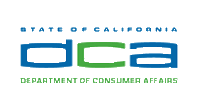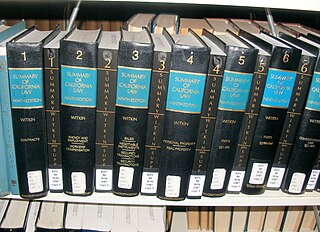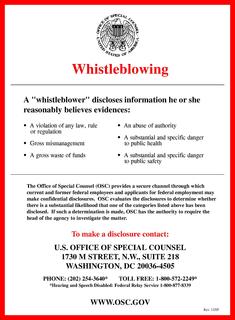
The American National Standards Institute is a private non-profit organization that oversees the development of voluntary consensus standards for products, services, processes, systems, and personnel in the United States. The organization also coordinates U.S. standards with international standards so that American products can be used worldwide.

A Fire Marshal or fire commissioner, in the United States and Canada, is often a member of a state, provincial or territorial government, but may be part of a building department or a separate department altogether. Fire marshals' duties vary but usually include fire code enforcement or investigating fires for origin and cause. Fire marshals may be sworn law-enforcement officers and are often experienced firefighters. In larger cities with substantially developed fire departments the local fire departments are sometimes delegated some of the duties of the fire marshal.

The National Electrical Code (NEC), or NFPA 70, is a regionally adoptable standard for the safe installation of electrical wiring and equipment in the United States. It is part of the National Fire Codes series published by the National Fire Protection Association (NFPA), a private trade association. Despite the use of the term "national", it is not a federal law. It is typically adopted by states and municipalities in an effort to standardize their enforcement of safe electrical practices. In some cases, the NEC is amended, altered and may even be rejected in lieu of regional regulations as voted on by local governing bodies.
In administrative law, rule-making is the process that executive and independent agencies use to create, or promulgate, regulations. In general, legislatures first set broad policy mandates by passing statutes, then agencies create more detailed regulations through rulemaking.

The Codex Alimentarius is a collection of internationally recognized standards, codes of practice, guidelines, and other recommendations relating to foods, food production, and food safety.
The International Building Code (IBC) is a model building code developed by the International Code Council (ICC). It has been adopted for use as a base code standard by most jurisdictions in the United States. It may also be used in Abu Dhabi, the Caribbean Community, Colombia, Georgia, Honduras, Afghanistan and Saudi Arabia. The IBC addresses both health and safety concerns for buildings based upon prescriptive and performance related requirements. The IBC is fully compatible with all other published ICC codes. The code provisions are intended to protect public health and safety while avoiding both unnecessary costs and preferential treatment of specific materials or methods of construction.

The California Public Utilities Commission is a regulatory agency that regulates privately owned public utilities in the state of California, including electric power, telecommunications, natural gas and water companies. In addition, the CPUC regulates common carriers, including household goods movers, passenger transportation companies such as limousine services, and rail crossing safety. The CPUC has headquarters in the Civic Center district of San Francisco, and field offices in Los Angeles and Sacramento.

The California Department of Consumer Affairs (DCA) is a department within the California Business, Consumer Services, and Housing Agency. DCA's stated mission is to serve the interests of California's consumers by ensuring a standard of professionalism in key industries and promoting informed consumer practices. The DCA provides the public with information on safe consumer practices, in an effort to protect the public from unscrupulous or unqualified people who promote deceptive products or services.

The law of California consists of several levels, including constitutional, statutory, and regulatory law, as well as case law. The California Codes form the general statutory law.
The California Code of Regulations is the codification of the general and permanent rules and regulations announced in the California Regulatory Notice Register by California state agencies. Such rules and regulations are reviewed, approved, and made available to the public by the Office of Administrative Law (OAL), and are also filed with the Secretary of State.
The California Bureau of Gambling Control is a regulatory agency that is part of the California Department of Justice. It regulates legal gambling activities in California to ensure that gambling is conducted honestly, competitively and free from criminal and corruptive elements. It is one of two agencies in California regulating gambling, along with the California Gambling Control Commission.
The Maryland Public Service Commission (PSC) is an independent administrative agency within the state government which regulates public utilities and certain taxi cab and other passenger services in Maryland. Similar to other state Public Utilities Commissions, the Maryland PSC regulates and sets tariff rates for natural gas, electricity distribution, local telephone, water, and sewage disposal companies. The PSC also sets the tariff rates for pilot services for vessels and privately owned toll bridges, approves the construction of electric generating plants and overhead transmission lines with a voltage above 69 kV, and licenses retail natural gas and electricity suppliers. The PSC offices are located in Baltimore in the William Donald Schaefer Building.
In regulatory jurisdictions that provide for it, consumer protection is a group of laws and organizations designed to ensure the rights of consumers as well as fair trade, competition and accurate information in the marketplace. The laws are designed to prevent the businesses that engage in fraud or specified unfair practices from gaining an advantage over competitors. They may also provide additional protection for those most vulnerable in society. Consumer protection laws are a form of government regulation that aim to protect the rights of consumers. For example, a government may require businesses to disclose detailed information about products—particularly in areas where safety or public health is an issue, such as food.

The Food Safety Modernization Act (FSMA) was signed into law by President Barack Obama on January 4, 2011. The FSMA has given the Food and Drug Administration (FDA) new authorities to regulate the way foods are grown, harvested and processed. The law grants the FDA a number of new powers, including mandatory recall authority, which the agency has sought for many years. The FSMA requires the FDA to undertake more than a dozen rulemakings and issue at least 10 guidance documents, as well as a host of reports, plans, strategies, standards, notices, and other tasks.
The California Green Building Standards Code is Part 11 of the California Building Standards Code and is the first statewide "green" building code in the US.

A whistleblower is a person who exposes any kind of information or activity that is deemed illegal, unethical, or not correct within an organization that is either private or public. The Whistleblower Protection Act was made into federal law in the United States in 1989.
The National Electrical Safety Code (NESC) or ANSI Standard C2 is a United States standard of the safe installation, operation, and maintenance of electric power and communication utility systems including power substations, power and communication overhead lines, and power and communication underground lines. It is published by the Institute of Electrical and Electronics Engineers (IEEE). "National Electrical Safety Code" and "NESC" are registered trademarks of the IEEE. The NESC should not be confused with the National Electrical Code (NEC) published by the National Fire Protection Association (NFPA). The NEC is used for residential, commercial, and industrial building wiring.
The Washington State Department of Labor and Industries (L&I) is a department of the Washington state government that regulates and enforces labor standards. The agency administers the state's workers' compensation system, conducts workplace inspections, licenses and certifies trade workers, and issues permits for heavy machinery.













